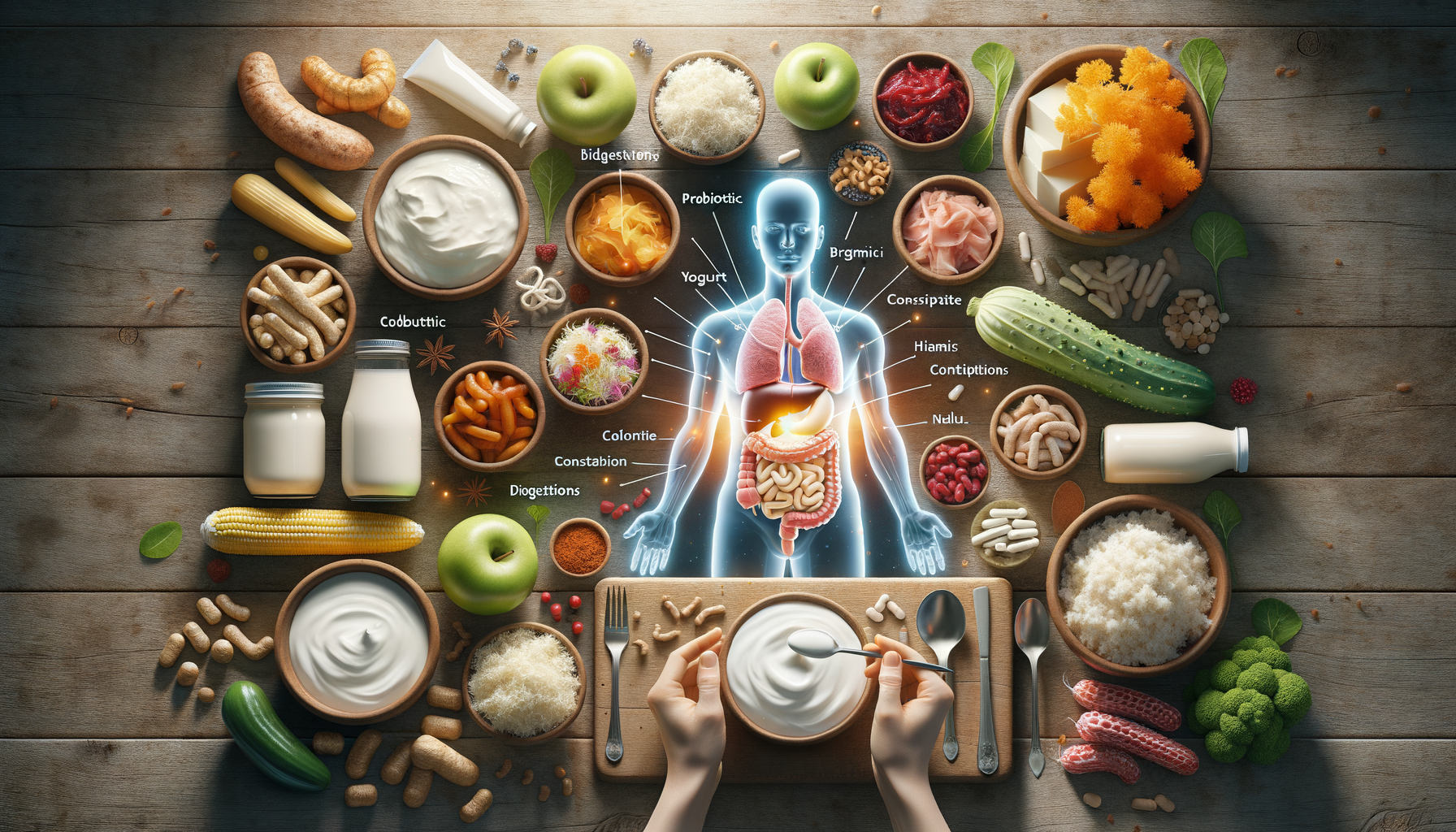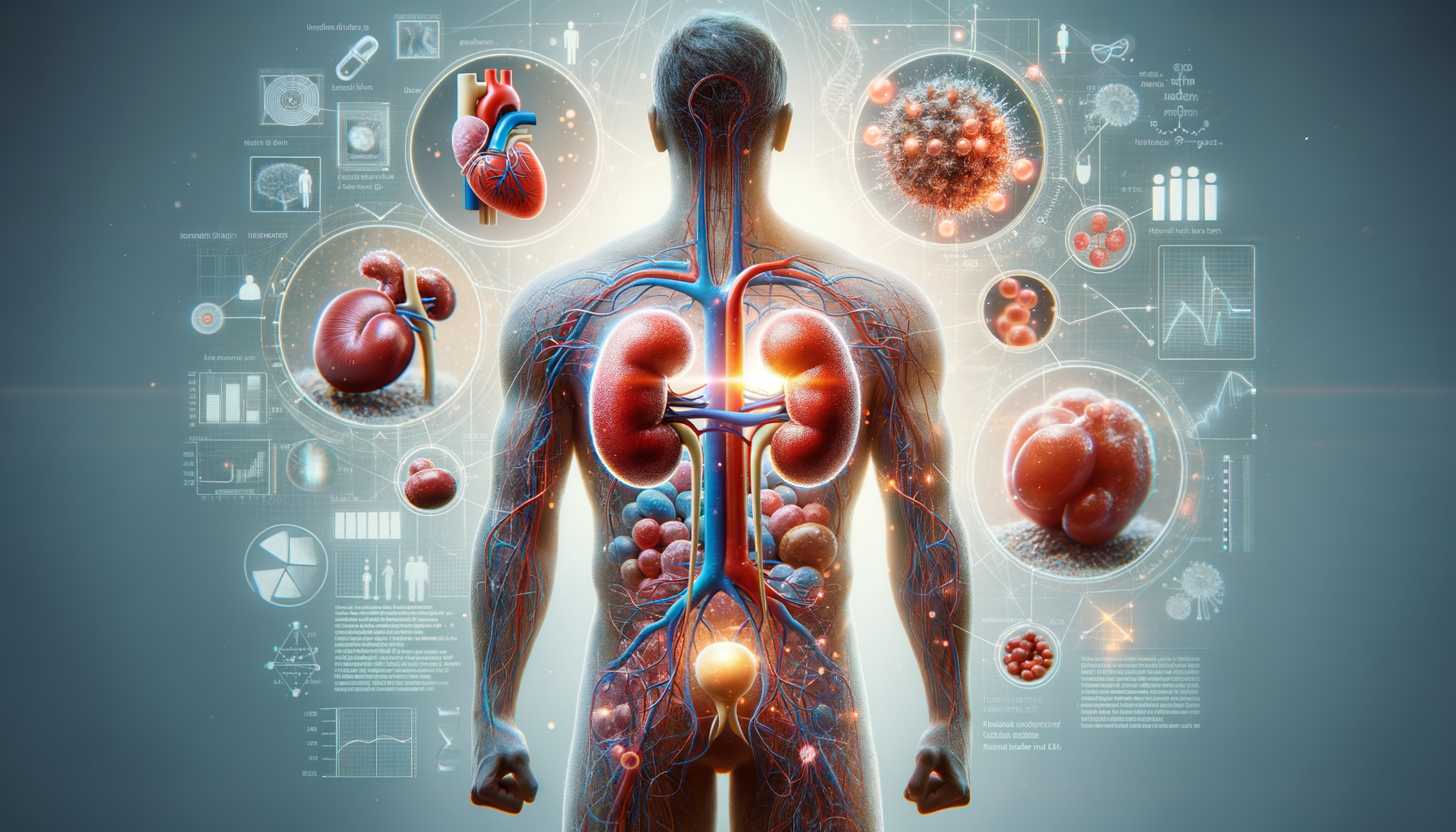Understanding Probiotics and Their Role in Gut Health
Probiotics are live microorganisms that, when consumed in adequate amounts, confer a health benefit on the host. They are often referred to as “good” or “friendly” bacteria because they help keep the gut healthy. The human gastrointestinal tract is home to trillions of bacteria, and maintaining a balance between beneficial and harmful bacteria is crucial for digestive health. Probiotics contribute to this balance by enhancing the gut flora, which is essential for digestion, nutrient absorption, and immune function.
There are several strains of probiotics, each with unique benefits. The most common genera include Lactobacillus and Bifidobacterium, which are frequently found in fermented foods like yogurt, kefir, and sauerkraut. These strains have been extensively researched for their ability to alleviate digestive issues, boost the immune system, and improve overall well-being.
Probiotics play a significant role in gut health by:
- Enhancing the gut barrier function
- Modulating the immune response
- Inhibiting the growth of pathogenic bacteria
- Producing short-chain fatty acids that provide energy to colon cells
Understanding the diverse roles of probiotics can help individuals make informed decisions about incorporating them into their diet for improved digestive health.
Probiotics and Constipation: A Natural Remedy
Constipation is a common digestive issue characterized by infrequent bowel movements and difficulty passing stools. It can be caused by various factors, including a low-fiber diet, dehydration, and lack of physical activity. Probiotics offer a natural remedy for constipation by promoting regular bowel movements and improving stool consistency.
Several probiotic strains have been identified as effective in relieving constipation. Lactobacillus reuteri, Bifidobacterium lactis, and Lactobacillus casei Shirota are among the strains that have shown promising results in clinical studies. These probiotics work by enhancing gut motility and increasing the frequency of bowel movements.
In addition to improving bowel regularity, probiotics can also help alleviate other symptoms associated with constipation, such as bloating and abdominal discomfort. By restoring the balance of gut bacteria, probiotics contribute to a healthier digestive system and overall well-being.
Incorporating probiotics into the diet can be an effective strategy for managing constipation naturally. Whether through supplements or probiotic-rich foods, individuals can experience relief from constipation and enjoy improved digestive health.
Choosing the Right Probiotic for Constipation Relief
When selecting a probiotic for constipation relief, it’s essential to consider the specific strains and their proven benefits. Not all probiotics are created equal, and different strains offer varying effects on gut health.
Here are some factors to consider when choosing a probiotic:
- Strain specificity: Look for probiotics that specifically target constipation, such as Lactobacillus reuteri and Bifidobacterium lactis.
- CFU count: Colony-forming units (CFUs) indicate the number of viable bacteria in a probiotic. A higher CFU count may provide more significant benefits.
- Delivery method: Probiotics are available in various forms, including capsules, powders, and fermented foods. Choose a delivery method that suits your preferences and lifestyle.
- Quality and brand reputation: Opt for reputable brands that adhere to high manufacturing standards and provide transparent labeling.
By considering these factors, individuals can select a probiotic that effectively addresses their constipation concerns and supports their digestive health.
Incorporating Probiotics into Your Daily Routine
Integrating probiotics into your daily routine can be a simple and effective way to support digestive health and alleviate constipation. Here are some practical tips for incorporating probiotics into your lifestyle:
- Start with foods: Include probiotic-rich foods like yogurt, kefir, sauerkraut, and kimchi in your diet. These foods are not only delicious but also provide a natural source of beneficial bacteria.
- Consider supplements: If dietary sources are insufficient, probiotic supplements can offer a convenient way to boost your intake. Look for supplements with strains known for alleviating constipation.
- Stay consistent: Consistency is key when it comes to probiotics. Regular consumption ensures that beneficial bacteria remain active in the gut, providing ongoing support for digestive health.
- Monitor your body’s response: Pay attention to how your body responds to probiotics. Some individuals may experience changes in bowel habits or mild digestive discomfort initially, but these effects typically subside as the body adjusts.
By following these tips, you can seamlessly incorporate probiotics into your daily routine and enjoy the benefits of improved digestive health and relief from constipation.
Potential Side Effects and Considerations
While probiotics are generally considered safe for most people, it’s important to be aware of potential side effects and considerations. Some individuals may experience mild digestive discomfort, such as gas or bloating, when first introducing probiotics into their diet. These symptoms are usually temporary and subside as the body adjusts to the new bacteria.
For individuals with compromised immune systems or underlying health conditions, it’s advisable to consult a healthcare professional before starting a probiotic regimen. Certain strains may not be suitable for everyone, and personalized guidance can help ensure safety and effectiveness.
Additionally, it’s essential to choose high-quality probiotics from reputable sources. The supplement industry is not as tightly regulated as pharmaceuticals, so selecting products with transparent labeling and third-party testing can help ensure purity and potency.
By being mindful of these considerations, individuals can safely incorporate probiotics into their wellness routine and experience the benefits of improved digestive health and constipation relief.




Leave a Reply